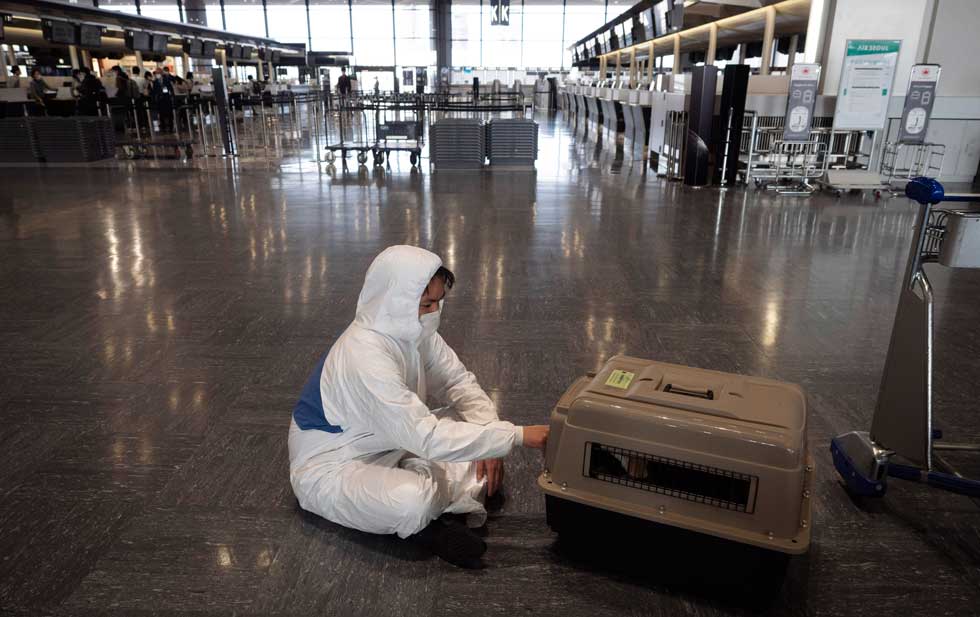US bans entry of dogs from countries at risk of rabies

New York- The United States will ban for one year the entry of dogs from more than 100 countries where rabies remains a problem, officials announced today.
Dogs in those countries had to prove in advance that they had been vaccinated against rabies. The Centers for Disease Control and Prevention said the ban would be enforced due to an increase in the number of puppies denied entry because they were not fully vaccinated enough.)
This ban will be effective from July 14.
Douglas Kratt, president of the American Veterinary Medical Association, welcomed the decision.
“We want to make sure we are bringing healthy dogs into the country, especially if they are going to be pets,” said Kratt, a veterinarian based in La Crosse, Wisconsin.
The ban covers dogs entering or returning to the country, including pets or dogs brought for sale or adoption. For example, if an American couple brings their dog to Belize, they will not be able to bring it back to the United States unless the dog has spent the first six months in a country that does not have a high risk of rabies.
About one million dogs are brought into the United States each year, officials said, and the ban is expected to affect between 4% and 7.5%. Exceptions will be made for certain situations, such as guide dogs or foreigners visiting the country with their pets.
Most of the dogs recently denied entry came from three countries: Russia, Ukraine and Colombia. But several more disclaimers prompted the CDC to ban dogs from all countries where the risk of rabies is high, explained CDC rabies expert Emily Piaressi.
Many of the rejections were for false documentation that claimed the dogs were over 4 months old, Pieraki said. Dogs under 4 months of age cannot enter the country because the rabies vaccine has no effect before the dog reaches that age.
Rabies is a commonly fatal disease for both dogs and humans, and is caused by a virus that attacks the central nervous system. Usually, it is spread through the bite of an infected animal. There is no cure once symptoms appear, but it can be prevented by vaccination.
Dogs were once common carriers of the virus in the United States, but rabies, which is commonly transmitted between dogs, was eliminated in the country through vaccination in the 1970s. In 1988, a new type of canine rabies was introduced from Mexico. It spread to wild coyotes and took 19 years to eradicate.
That second wave of cases “highlights the impact that a single case of imported rabies can have on wildlife, domestic animals, and people,” Pieracki said.
Dogs are believed to be in demand during the COVID-19 pandemic as Americans look for a furry company, Pieraki said.
However, some rabies vaccination programs for dogs had to be suspended or canceled during the pandemic, so the risk of bringing a dog down with rabies is high, he said.

“Wannabe troublemaker. Pop culture fanatic. Zombie nerd. Lifelong bacon advocate. Alcohol enthusiast. Tv junkie.”









